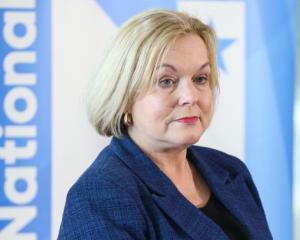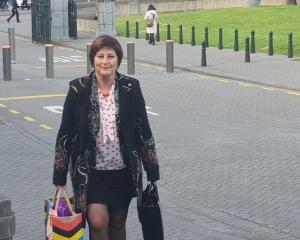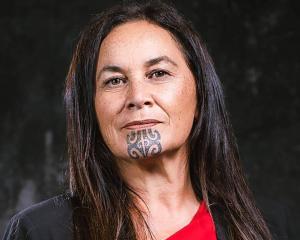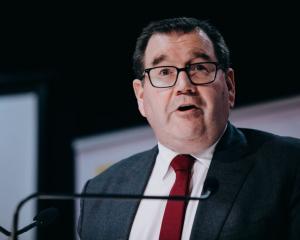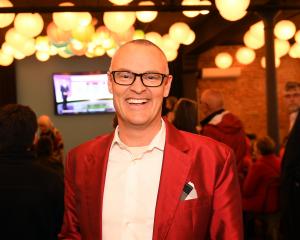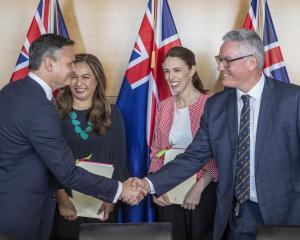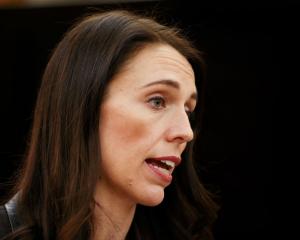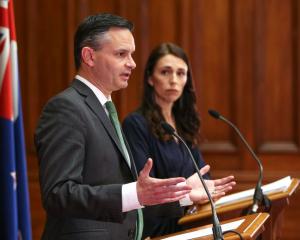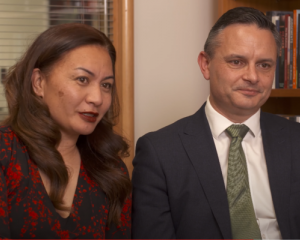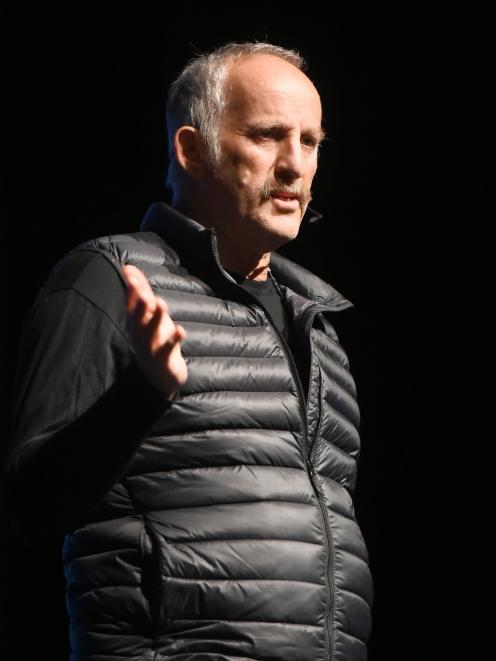
Motivating his young supporters to vote will be key to any electoral success The Opportunities Party leader Gareth Morgan has on Saturday.
Mr Morgan attracted a crowd of nearly 300 to the Kings and Queens Performing Arts Centre on a wet Dunedin night and about three-quarters of those attending were under 25. There were older voters there, but the majority were younger people who are notoriously difficult to motivate to either enrol or vote.
It was the fourth visit by Mr Morgan to Dunedin and he acknowledged the support he had received since his first visit in March, and the hard work being put in by both Dunedin South candidate Lindsay Smith and Dunedin North candidate Abe Gray.
To prove a point, to himself and to pollsters, Mr Morgan asked how many in the audience did not have access to a landline. It was no surprise the younger people in the audience put up their hands, waving their mobile phones.
"Let’s show that to the pollsters," he said.

If Mr Morgan was concerned about Saturday’s result and how much of his own money he had ploughed into TOP’s campaign, he did not show it.
Alone on the stage, the TOP leader indulged in anecdotes and homilies. He stood with his hands in his pockets, casually dressed but with an air of low-key determination.
There were no policy surprises from the meeting, his third-last for 2017 campaign. Today, he is in Christchurch and on Thursday, he is back in Wellington.
As in previous meetings in the city, Mr Morgan talked about how comparatively wealthy the country was but how it led the OECD in some things such as the highest rate of homelessness, the highest rate of youth suicide, the second-highest rate of bullying at schools, the second-highest rate of bullying in the workforce, mostly directed at women, and a high rate of poverty.
He explained his unconditional basic income policy and answered questions on health and "punitive" benefit cuts.
TOP carried out a polling project before launching on November 5 last year to find out what motivated voters.
Of those polled, 39% based their decision on what was in it for them. Another 31% based their decision on which party was promoting the policy and 24% said if they could not stand the person announcing the policy, they would not vote for it.
"That is 94% and leaves us with 6% of people who vote for the good of New Zealand. That’s our target market — a niche vote but one we want to expand.
"When I looked at the 94%, I said ‘tell me it ain’t so. I guess we will find out on Saturday."

